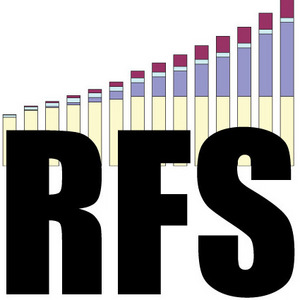RFA responds to House energy committee with 10 questions

May 23, 2013
BY Renewable Fuels Association
The Renewable Fuels Association responded to seven questions proposed by the House Energy and Commerce Committee with 10 questions of its own. The RFA’s questions stress the need to examine the impact of the renewable fuel standard (RFS) in a broader context including the negative impact of Big Oil and the damaging effects of gasoline production on the environment. The House of Representatives Energy and Commerce Committee is examining the renewable fuel standard in a series of whitepapers. In its third whitepaper, the Committee posed questions entitled, “Greenhouse Gas Emissions and Other Environmental Impacts.”
RFA President and CEO Bob Dinneen stated, “When assessing the environmental impacts of renewable fuels, it is absolutely imperative to make appropriate comparisons to the impacts associated with the use of petroleum fuels. In other words, it is inappropriate to examine the environmental effects of the RFS without simultaneously examining the effects of not having the RFS. It is also important to compare new renewable fuels entering the market to the actual sources of marginal petroleum they are delaying and displacing.”
He continues, “In that regard, the questions posed by the committee appear woefully incomplete. By focusing exclusively on the environmental impacts of ethanol and other biofuels used for the RFS, the committee is missing the significant environmental and public health consequences of increased petroleum production and use in the absence of ethanol and the RFS.”
The proposed questions from the RFA:
1. What are the environmental effects of oil exploration, including seismic surveys, drilling and well logging, deployment of marine platforms, and infrastructure development?
2. What are the environmental effects of oil extraction, including fracturing, pumping, and additional infrastructure establishment?
Advertisement
Advertisement
3. What are the environmental effects of crude oil distribution, including transportation (ocean tanker, rail and/or truck) and pipeline?
4. What are the environmental effects of gasoline production at the refinery?
5. What are the environmental effects resulting from gasoline distribution, including transportation, pipeline shipment and storage?
6. What are the environmental and public health effects of gasoline use, including fuel blending, fuel dispensing and driving?
7. What are the GHG emissions impacts of increased unconventional oil production from Canadian oil sands, tight oil from fracking, thermally enhanced oil recovery, and gasoline production, distribution and use?
8. How has the composition of gasoline and resulting emissions changed since 2005?
Advertisement
Advertisement
9. What are the GHG and other environmental impacts of our dependence on imported oil and the national security implications of that dependence?
10. Do current lifecycle analysis tools and models fully capture the environmental and carbon effects of oil exploration, extraction, processing, transportation and combustion?
Dinneen concluded, “Context is important. As Congress assesses the merits of ethanol and the RFS, a clear understanding of the fossil fuels being displaced by ethanol and other renewable fuels is imperative. Changes to the RFS would undoubtedly lead to increased use of marginal petroleum, fuels that have their own distinct environmental, public health and carbon effects.”
In response to the Committee’s questions, Dinneen stated, “the RFS has succeeded in reducing GHG emissions, decreasing other harmful tailpipe pollutants, and displacing crude oil imports with more sustainable renewable transportation fuels.”
The committee asked about the impact of the RFS on reducing greenhouse gas emissions compared to current petroleum fuel levels. Dinneen responded, “The RFS is unquestionably reducing GHG emissions today compared to baseline petroleum. As an initial matter, it is important to understand there is a fundamental difference between the carbon cycle of renewable fuels and the carbon cycle of fossil fuels.”
He continues by stating, “The GHG emissions reduction associated with substituting ethanol for gasoline has been equivalent to removing an average of 6.4 million vehicles from America’s roadways annually from 2008 to 2012.”
The RFA’s full response to the Committee’s original questions can be found in this RFA whitepaper.
Related Stories
The U.S. EPA on July 8 hosted virtual public hearing to gather input on the agency’s recently released proposed rule to set 2026 and 2027 RFS RVOs. Members of the biofuel industry were among those to offer testimony during the event.
The USDA’s Risk Management Agency is implementing multiple changes to the Camelina pilot insurance program for the 2026 and succeeding crop years. The changes will expand coverage options and provide greater flexibility for producers.
President Trump on July 4 signed the “One Big Beautiful Bill Act.” The legislation extends and updates the 45Z credit and revives a tax credit benefiting small biodiesel producers but repeals several other bioenergy-related tax incentives.
CARB on June 27 announced amendments to the state’s LCFS regulations will take effect beginning on July 1. The amended regulations were approved by the agency in November 2024, but implementation was delayed due to regulatory clarity issues.
SAF Magazine and the Commercial Aviation Alternative Fuels Initiative announced the preliminary agenda for the North American SAF Conference and Expo, being held Sept. 22-24 at the Minneapolis Convention Center in Minneapolis, Minnesota.
Upcoming Events










